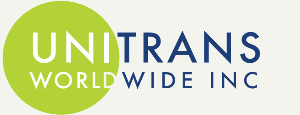In February, the International Civil Aviation Organization (ICAO)—the United Nations agency that regulates the transport of dangerous goods aboard aircraft —enacted a ban on transporting standalone lithium ion batteries (UN 3480) as cargo on passenger aircraft. The ban goes into effect April 1, 2016.
Since lithium metal batteries (UN 3090) were already prohibited, the new regulation means no standalone lithium batteries, in any quantity or packaging, may be shipped as cargo on passenger aircraft.
Can you still ship lithium batteries by air? Yes. Batteries packed with or in equipment (UN 3091 and 3481) may still be shipped compliantly, subject to regulations. (Passengers may still transport their own battery powered devices and spare batteries in their carry-on bags—for now. See https://www.faa.gov/about/initiatives/hazmat_safety/more_info/?hazmat=7 for FAA’s guidance)
And all lithium batteries may still be transported on cargo-only aircraft, subject to regulations—see below. However, you need to be aware that airlines may have their own variations in place even though the regulations don’t prohibit them on cargo aircraft.
ICAO has also mandated that, effective April 1, 2016, standalone lithium ion batteries (UN 3480) can only be shipped by air with a state of charge 30% or less. In addition, shippers will be not be authorized to transport more than one package of standalone lithium ion batteries prepared in accordance with packing instruction 965 or 968 Section II per consignment. “A shipper is not permitted to offer for transport more than one package prepared according to Section II in any single consignment.” A consignment is defined as: ” One or more packages of dangerous goods accepted by an operator from one shipper at one time and at one address, receipted for in one lot and moving to one consignee at one destination address.”
No more than one Section II lithium battery package may be placed into an overpack.
Section II packages may not be offered in a unit load device and must be offered separately from other non-dangerous cargo.
So, come April 1st, if you have to ship lithium ion batteries by air which are not packed with equipment, you’ll have to:
Ship them by cargo aircraft only (if the airline hasn’t filed a variation or implemented an embargo)
Ensure they are at a state of charge no more than 30% of capacity
Pack them separately from everything else
How will shippers verify the state of charge of prepackaged batteries? How can you manage the more restrictive packing rules?
New lithium battery markings and labels – You will need to begin using new markings and Class 9 hazmat labels for all lithium battery shipments—but not until January 1, 2019. (Early adopters are free to use them voluntarily on January 1, 2017.)lithbathandlenewnewhazclass9
Rumors of lithium batteries earning their own hazard Class 10 were thus put to rest, at least for the time being.
Authors
Labelmaster
Tags Dangerous Goods, Dangerous Goods by Air, Featured Article, how to ship lithium batteries, IATA, ICAO
Related posts

Follow Us!